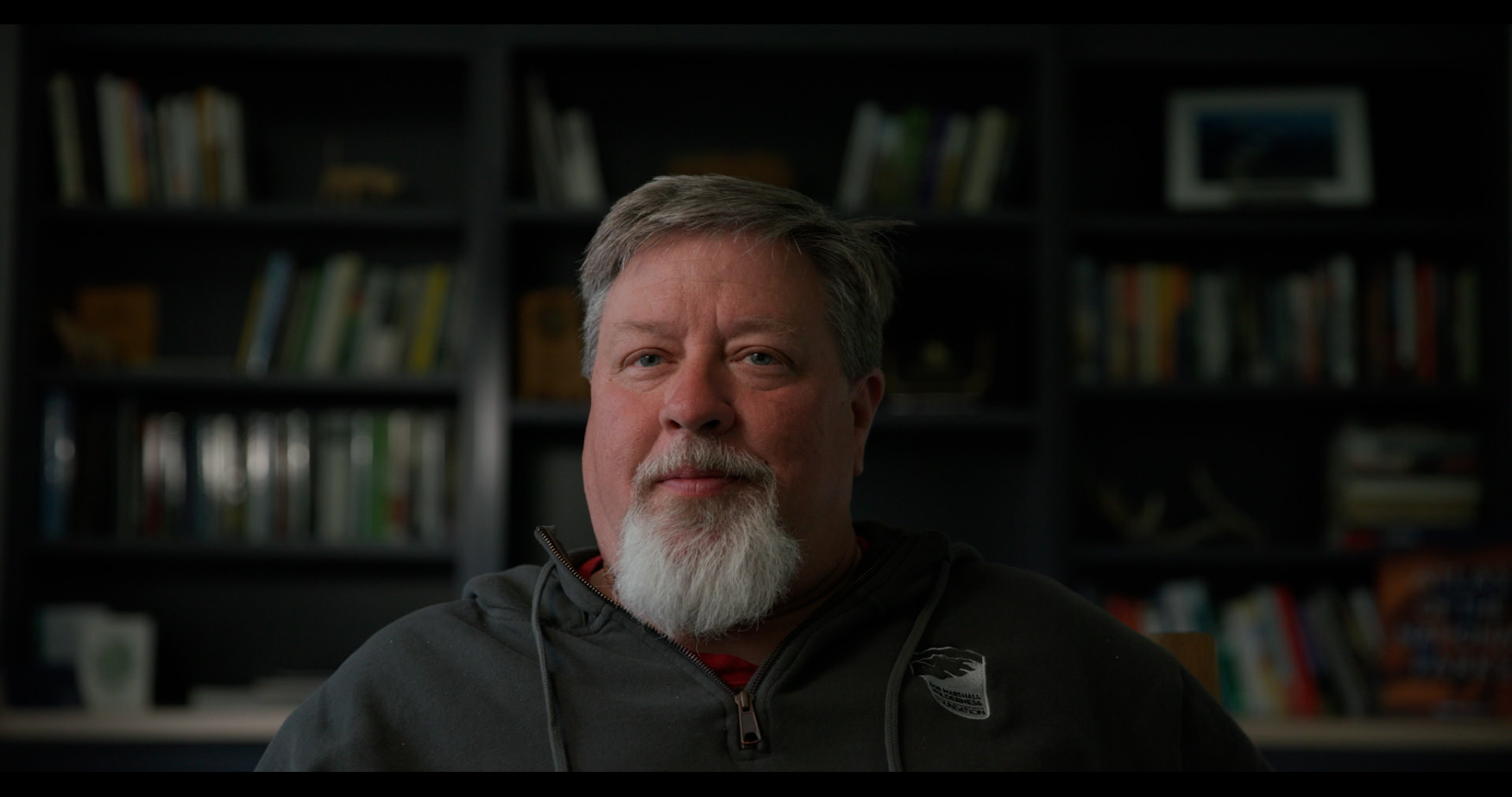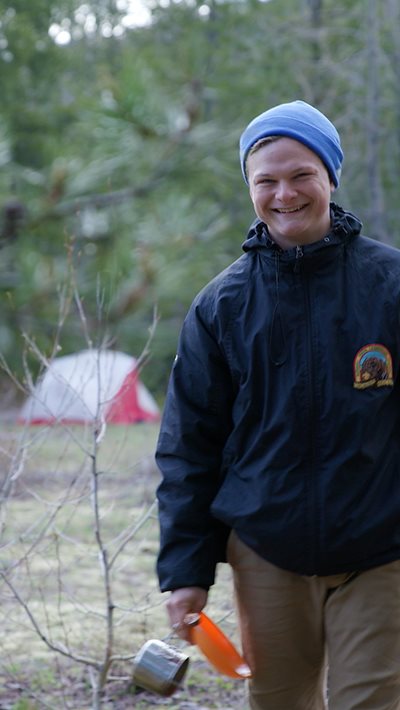The Truth is Wilder—and More Breathtaking—Than Fiction
"A wilderness, in contrast with those areas where man and his own works dominate the landscape, is hereby recognized as an area where the earth and its community of life are untrammeled by man, where man himself is a visitor who does not remain."—Howard Zahniser, The Wilderness Act, 1964
There is no doubt that when someone mentions Montana, images of gorgeous mountain landscapes come to mind. Snow-capped mountains, rocky outcroppings, green valleys, and trees as far as the eye can see. So it’s no surprise that these memorable vistas are partly inspired by Montana’s greatest wilderness: the Bob Marshall Wilderness Complex (BWMC).
“Which is what I like to call 1.5 million acres of quintessential Montana,” says Bill Hodge, Executive Director of the BMWF from 2018-2022.
“Big and wild.”

And oh, it is big. Comprised of more than 1.5 million acres—the entirety of which is in Montana—the Bob Marshall Wilderness Complex (BMWC) is one of the largest wilderness areas in the United States. Designated in 1964, the Bob Marshall Wilderness Complex is named after well-known American forester, writer, and wilderness (as well as civil liberties) activist Bob Marshall, who was one of the founders of The Wilderness Society (a non-profit organization committed to conservation, including the national monuments).
“Bob Marshall is the most important American that most Americans don’t know” - Bill Hodge
“Bob Marshall is the most important American that most Americans don’t know,” says Hodge. Marshall’s work and efforts were instrumental in what would eventually become the Wilderness Act of 1964, which created a basis for permanent wilderness conservation and a chance to preserve these stunning lands for future generations. “He was a philanthropist, a millionaire; he was openly socialist. He was accused of being a communist—which he was not.”

Until his sudden death in 1939, at thirty-eight, Marshall worked tirelessly to preserve and protect the stunning wild landscapes in the United States, believing they should also be accessible to everyone, especially low-income folks, and not for profit. He was an outlier, a passionate wilderness devotee, and a man with enough vision to anticipate the future. “He was a character. He was famous for hiking 45-mile days. And ultimately becomes one of the founders of The Wilderness Society, without which we wouldn’t have the wilderness preservation system we have today.”
Known affectionately as “the Bob” by Montanans and U.S. Forest folks, the complex includes the Scapegoat and Great Bear wildernesses, which take up most of the Flathead National Forest—including the jaw-dropping, 1,000-foot high and 22-mile-long escarpment known as the Chinese Wall.
It’s everything an adventure lover could ask for – deep forests, bubbling streams, and rivers of crystal-clear water flanked by soaring trees and the jutting green, snow-spackled mountains behind them under a canopy of a blue Montana sky. There’s the sweet smell of fresh air, pine needles, and the sounds of wind through the tops of evergreens. It’s nature in all her splendid, exquisite glory.
“I think the biggest thing most people get out of [the wilderness] is transformational experiences.” - Bill Hodge
And for Hodge, that’s something not only worth protecting but embracing. “I think the biggest thing most people get out of [the wilderness] is transformational experiences.”
It’s not just camping or escaping the confines of our suburban or urban lives for a few days. Entering the wilderness is about losing yourself in the best sense of the word, stepping out of the trappings and ruts we lose ourselves in, and stepping into the spaces and experiences we need to not only ground ourselves but remind us of who we are outside of our roles, our expectations, and the everyday conveniences of our lives.
And for the many volunteers who give their time and so much energy to this enormous landscape, it’s a good tradeoff.
“The heart of the Bob Marshall Wilderness Foundation is active wilderness stewardship, and it’s doing it with an amazing collection of volunteers and an emerging set of new conservation leaders,” says Hodge. Donning sturdy outdoor gear, the volunteers seek adventure even as they connect with the outdoors.
“An average workday at the Bob Marshall Wilderness Foundation is coffee’s on by six-thirty in the morning, eight o’clock we’re stretchin’, and then off we go. That day might involve clearing 150 trees that have fallen across the trail. Knowing you made a difference keeping that trail open, whatever the project might be, you know you made a difference and got to have this amazing experience with other people.”

For some, that experience can create a lifelong passion for the outdoors. It’s not just experiencing it but ensuring that these wide open, wild spaces, forests, and mountains are preserved for the future. These wildernesses are a legacy, and that ethos is a responsibility and a natural gift that not only can ordinary citizens actively work to protect and conserve but even engage the support and commitment of local communities, businesses, and organizations, including Whitefish Credit Union.

“The future of the Bob—and the future of wilderness—rely on a new generation of heroes. You’ll be a collection of passionate people who reflect the full spectrum of the American experience. You’ll be a connection formed with muscle, curiosity, and passion. There’ll be new hurdles to overcome and new stories forged by spending time deep in the rugged mountains. These new heroes may walk to a different rhythm than those in our history, but they’ll share a common bond that dates back to a time before an American nation and the Western concept of preservation. We are all, after all, standing on the home of Salish, Kootenai, and Blackfoot people when we travel through the Bob.”
For Hodge, of course, the hope is that the spark of the newer generations will kindle a blaze that encompasses them not only for their lives but for future generations. Perhaps even inspiring the next Bob Marshall.
“There is a passion in this community. I actually have faith that this generation’s gonna get s**t turned around,” he says, chuckling. “I hope.”
For now, though, the Bob continues to inspire not only a county, a town, or even the state of Montana but Americans and those around the world. It’s a haven, a respite. And a reminder that beneath our feet is a planet capable of so much beauty—and that we’re invited to visit, breathe deeply, and let ourselves be gloriously lost and found.
In the words of one BMWF volunteer: “I think the best way to find yourself is to challenge yourself. Just when you’re feelin’ kinda lost. The good thing about living in Montana is you have the best therapy in the world in your backyard.”

Looking for more information about the Bob Marshall Wilderness? Discover how you can get involved, donate, volunteer, and explore the Bob here.
For members like you.
Because what we do pays dividends.
